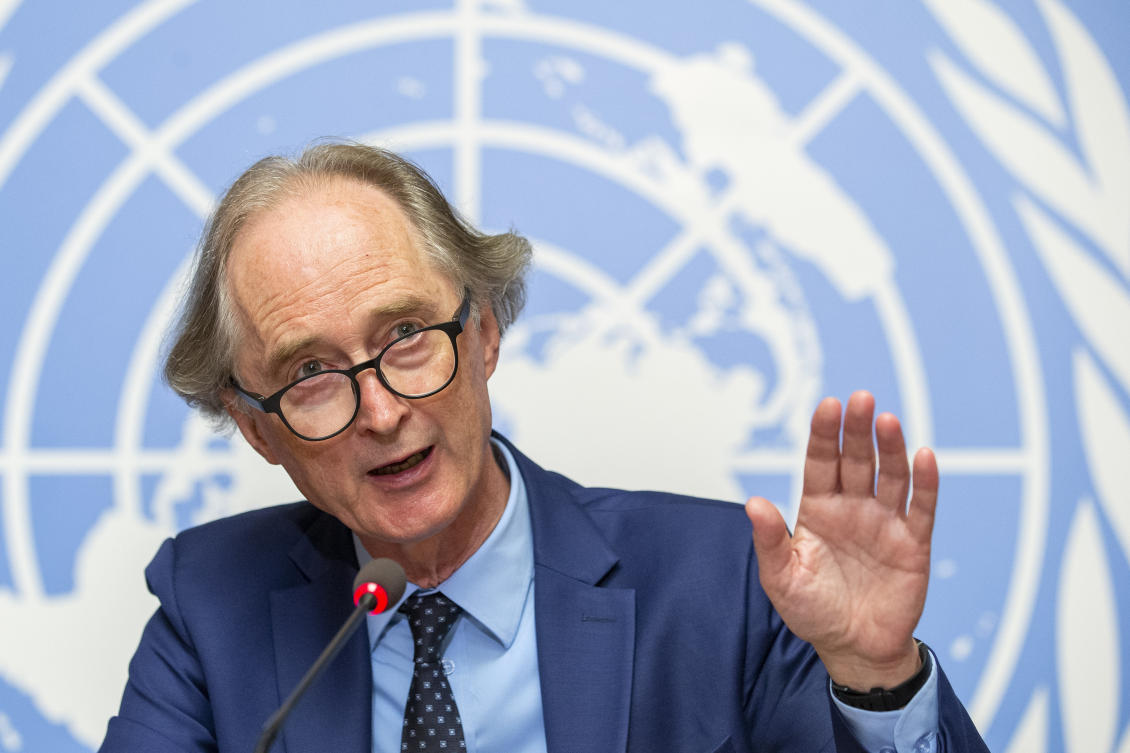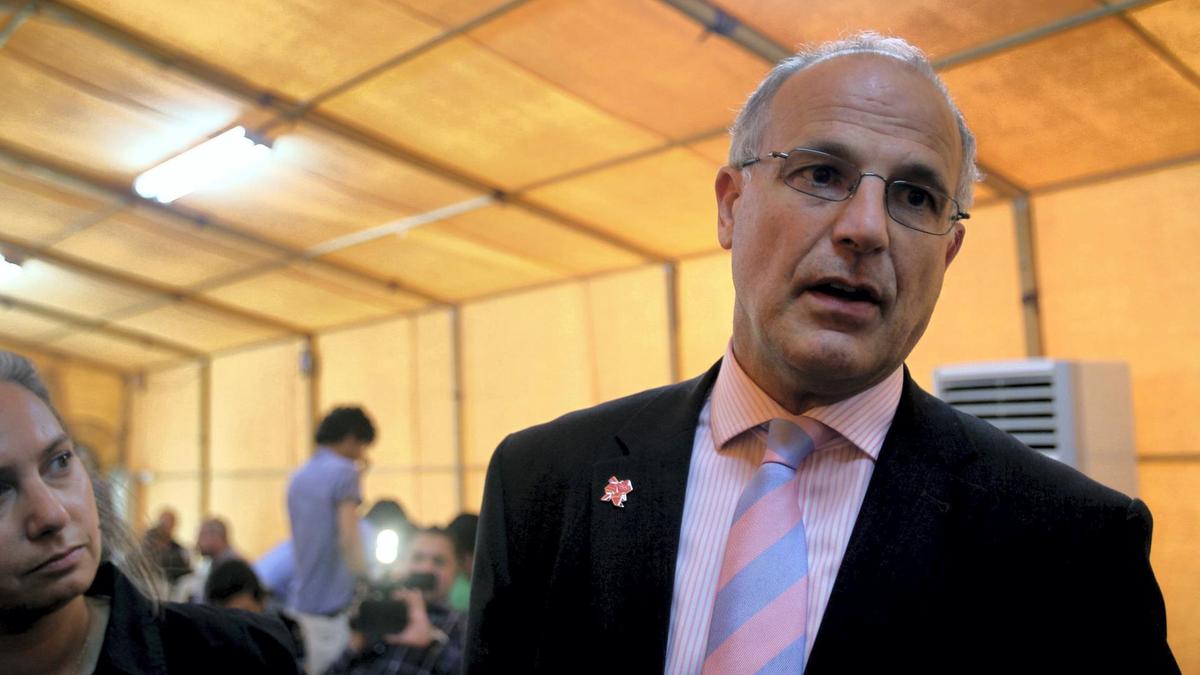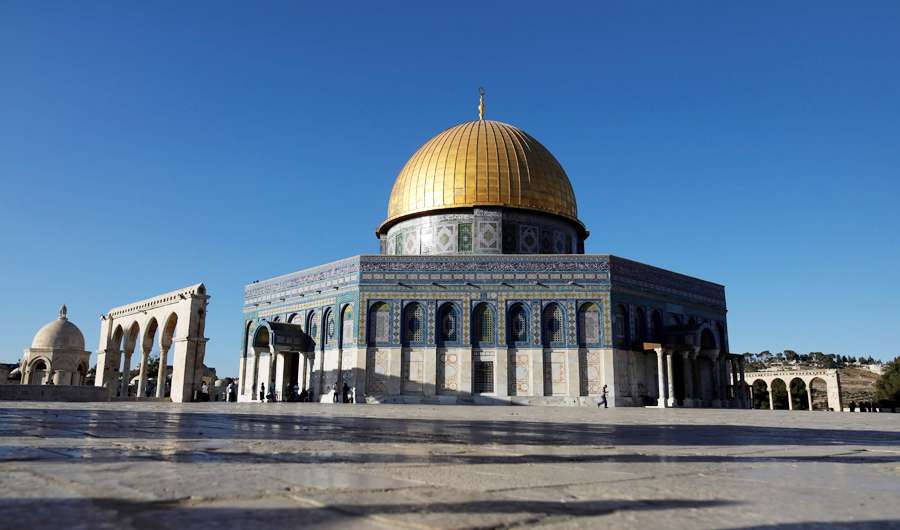DUBAI: Abdel Latif El-Menawy had a unique perspective on the events of Jan. 25, 2011, and the tumultuous weeks that followed. As head of news at the state-owned Egyptian Radio and Television Union, he watched the revolutionary upheaval unfold from his newsroom in the Maspero television building on the Nile Corniche. Now, a decade on, El-Menawy looks back at Hosni Mubarak’s fall from power and the events that led to this reckoning.
Most narratives of the Arab Spring begin the same way, over 2,000 miles west of Cairo in the Tunisan capital, Tunis, where, on Dec. 17, 2010, a poor street vendor named Mohamed Bouazizi set himself on fire after police confiscated his fruit cart. His anguished cry for justice set off a chain reaction, drawing vast crowds onto the streets and forcing Tunisia’s ruler of 23 years, Zine El Abidine Ben Ali, to step down.
There is no doubt that Jan. 25 is an important chapter in Egypt’s modern history, regardless of its results or the security and political turmoil that occurred after it in Egypt.
Abdel Latif El-Menawy
Bouazizi’s sacrifice and the “Jasmine Revolution” it inspired were felt across the Middle East and North Africa, where swathes of the population had endured years of economic stagnation, mass unemployment and official corruption, coupled with limited personal freedoms and heavy-handed policing.
Emulating the rage of Tunisians, crowds of young Egyptians spilled onto the streets on Jan. 25 to demand change. Tahrir Square in downtown Cairo became the symbolic center of the movement, where protesters camped out under the watchful eye of the world’s media. Aggressive police tactics to quell the protests stoked anger further, culminating in calls for the removal of Mubarak.
“Egyptians like to give the impression that they are as calm as the waters on the surface of the Nile, the banks of which we have been living on since the dawn of civilization,” Menawy wrote in his 2012 book “Tahrir, the last 18 days of Mubarak” — his account of those remarkable weeks.

“But if you look a little deeper into the water, you will see underneath a plethora of whirlpools and currents. The fatal error committed by former President Mubarak’s regime, and its predecessors, was that they never grasped the true essence of the Egyptians.”
Indeed, Menawy believes several opportunities were missed by the Mubarak government to address the public grievances that ultimately led to its demise. Looking back with a decade’s hindsight, the veteran journalist wonders whether history could have played out differently.
“I felt that there were changes that had taken place in Egypt, and these changes were not born on Jan. 25, but some time before that, as the political situation in Egypt was suffering from great fluidity as a result of mistakes committed by the Mubarak regime,” Menawy told Arab News.
“When the regime couldn’t take advantage of the opportunities to correct the situation, these opportunities were wasted. That is why it was natural for the streets to move to demand change.”
Egypt is the most populous county in the Arab world — home to almost 85 million people at the time of the revolution in 2011. Today the figure is closer to 104 million.
Poverty rates on the eve of the upheaval vary, with some studies estimating almost 40 million Egyptians — roughly half of the population — were living below the poverty line on less than $2 a day.
Despite an annual economic growth rate of 7.2 percent during the first decade of the new millennium, the proportion of the population below the poverty line increased from 17.8 percent to 23 percent, according to Egyptian Council of Ministers data in 2010.
TIMELINE
Jan. 25, 2011: Thousands of protesters gather in Cairo’s Tahrir Square.
Feb. 11: Mubarak steps down, transitional military council takes power.
March 19: Egyptians approve constitutional amendments, paving way for elections.
June 24, 2012: Muslim Brotherhood candidate Mohammed Morsi wins presidential election.
June 30, 2013: Egyptians begin days of protests demanding Morsi’s resignation.
July 3: Defense Minister Abdel Fattah El-Sisi announces Morsi’s removal.
Dec. 25: Muslim Brotherhood designated a terrorist organization.
May 28, 2014: El-Sisi wins presidential election.
Moreover, the gap was widening between rich and poor, with a small elite living in luxury while whole segments of society struggled with the spiraling cost of living. Petrol prices were rising and there were even cases of food shortages.
When the years of pent-up frustration found their expression in the Arab Spring, it was almost impossible to the genie back in its bottle. Menawy vividly recalls the moment at 5 a.m. on Jan. 28, 2011, when a republican guard officer walked into his office, flanked by two soldiers, to tell him the Maspero television building was now under military control.
Protesters, angered by the state media’s coverage of events, had attempted to storm the television studio. Security forces would now decide who was allowed in or out of the building, as a countrywide crackdown got underway.
Another moment seared into Menawy’s memory came two weeks later, when Omar Suleiman, then-vice president and head of intelligence, entered the building on Feb. 11 to announce Mubarak’s resignation.

“In the name of God the merciful, the compassionate,” Suleiman told the nation in a short broadcast.
“Citizens, during these very difficult circumstances Egypt is going through, President Hosni Mubarak has decided to step down from the office of president of the republic and has charged the high council of the armed forces to administer the affairs of the country.” A military council was formed to run the country’s affairs.
There was jubilation in Tahrir Square, where young Egyptians felt their moment had finally come to create a fairer society. In reality, it was only the beginning of a fresh period of upheaval and uncertainty.
“There is no doubt that Jan. 25 is an important chapter in Egypt’s modern history, regardless of its results or the security and political turmoil that occurred after it in Egypt,” said Menawy.
“I think all parties are responsible for what happened. Everyone made mistakes. But it was a cornerstone of change in political life in Egypt. I think that we are still in the reform phase and there is no doubt that it will continue for a long time, because change is difficult.”
The dreams hatched in Tahrir Square were not fulfilled by Mubarak’s exit. Instead, the country was rocked by new economic calamities and the rise to power of Mohamed Morsi — a leading figure of the now-outlawed Muslim Brotherhood.
“I think that Jan. 25 has not achieved any successes other than throwing a stone into the stagnant political life,” Menawy said.
“Among the failures is also the deterioration of the Egyptian economy after stability. The events also created a state of extreme violence in society, whether physical violence or even at the level of ideas.”
Libya, Syria and Yemen were also swept up in the tumult of the Arab Spring. But rather than emerging as renewed forces, these nations were thrown into a decade of civil wars, the outcomes of which remain undecided.
Tunisia, meanwhile, is “trying to rearrange society through elections,” Menawy said. “Only Egypt corrected its path with the June 30 revolution.”
The “second Egyptian revolution” came in 2013, a year after Morsi’s inauguration. The resumption of street protests that summer saw Morsi forced from power and his Muslim Brotherhood designated as a terrorist organization.
The following year, Morsi’s defense minister, Abdel Fattah El-Sisi, won the presidential election and was sworn into office.
Contemplating why the Egyptian revolution took the path that it did, Menawy says the country is fortunate to have a strong sense of national identity and solid institutions.
“Egypt is a big country. It has its roots in the history of human civilization. It has a diverse, yet harmonious society,” he said. “Egypt also has a strong and united national army, which may not be found in other countries that are full of sectarian, ethnic and tribal conflicts.”
As Egypt looks ahead to the coming decade, Menawy hopes the process of political, social and economic reform will continue in order to reflect the country’s competing visions of the future.
In his view, the most important lesson to take away from the Jan. 25 revolution is that “the majority of Egyptians love their country dearly, but everyone loves it in a different way.”
Twitter: @jumanaaltamimi







